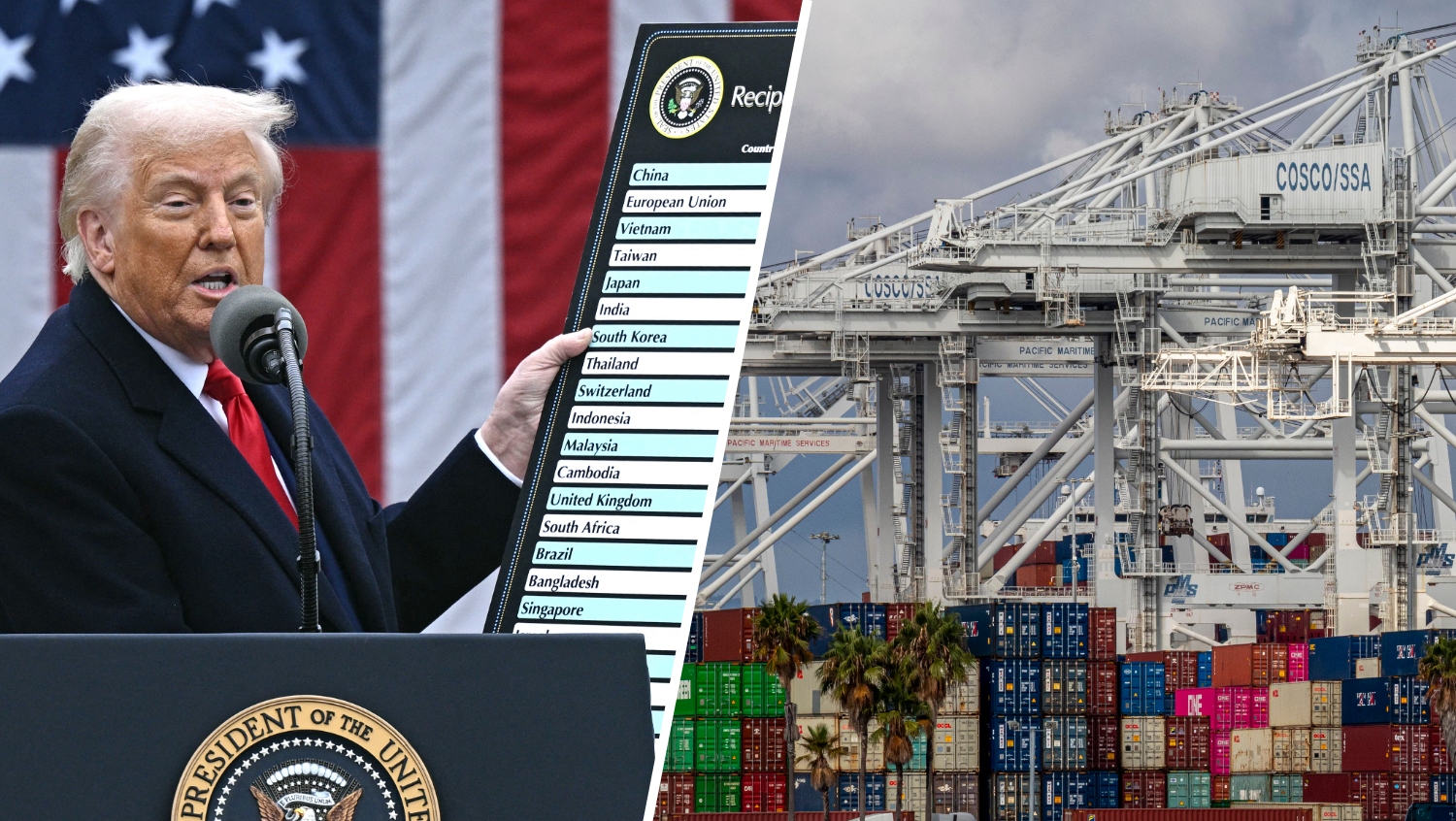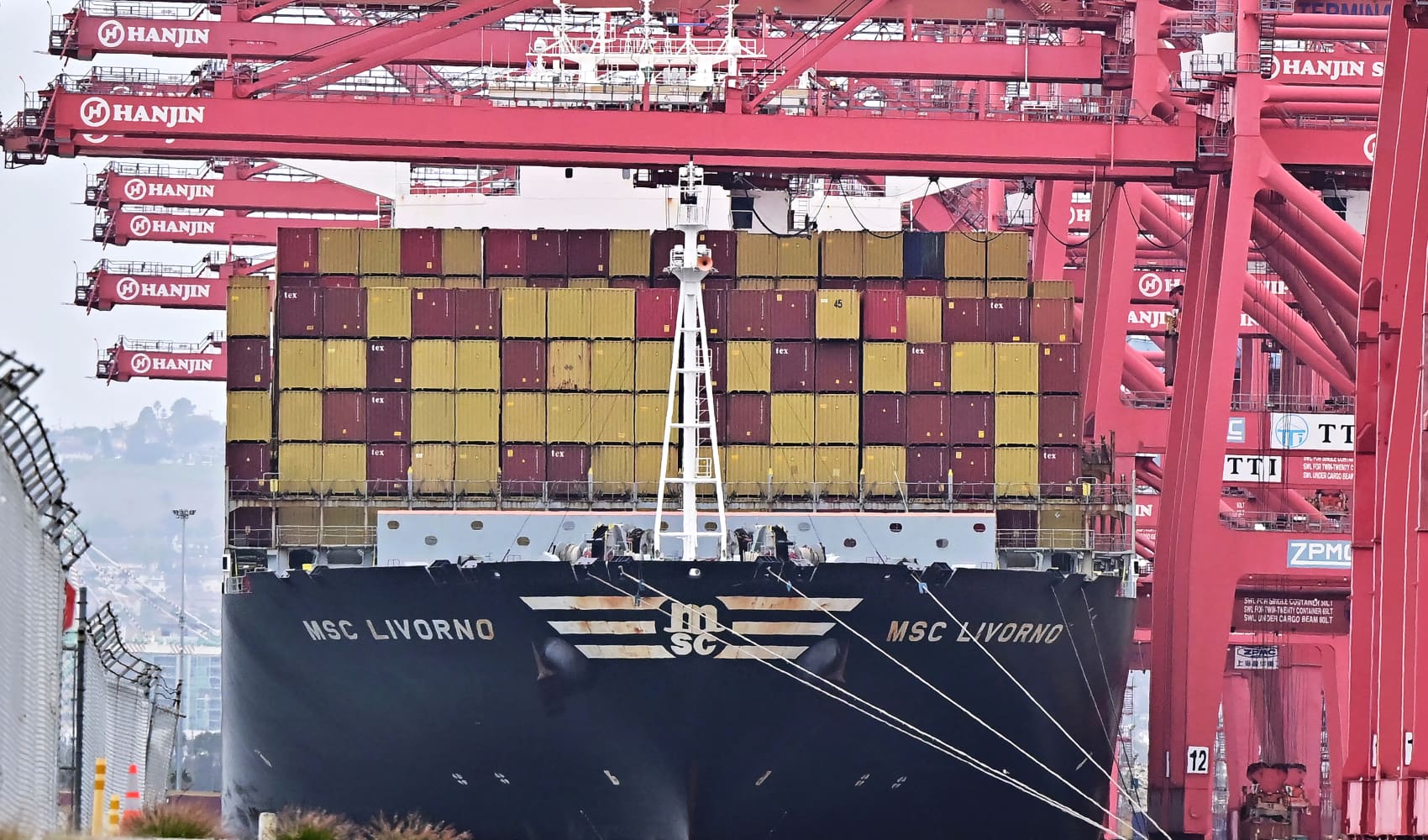A large portion of cargo imports through the Southern California ports is coming from China. Alex Rozier reports for the NBC4 News at 5 p.m. on Wednesday, April 9, 2025.
After President Donald Trump raised the tariff on Chinese imports to 125% on Wednesday after China boosted the duty on American goods to 84%, the Ports of Los Angeles and Long Beach are bracing for less cargo and job losses in the coming months, officials said Wednesday.
Nearly half of the businesses the ports handle are with China, both imports and exports combined.
“If my projection is correct, we will see at least a 10% drop in cargo volume in the second half of the year,” Port of LA Executive Director Gene Seroka said.
Big companies that conduct business through the Port of LA have been frontloading or advancing inventories for the past several months as they expected Pres. Trump to issue tariffs.
Get top local stories in Southern California delivered to you every morning. Sign up for NBC LA's News Headlines newsletter.
“Think of patio furniture, couches, chairs, television, electronic equipment, it’s all here now, knowing that this day would come with new tariffs,” Seroka said.
The Port of Long Beach is also expecting less traffic, expecting to lose about 20% in cargo volume in the second half of the year.
“About 63 to 64% of the cargo imports that come through the Port of Long Beach are Chinese imports,” Mario Cordero, CEO of the port, said.
As Port of LA officials expect an decrease in job opportunities, Cordero said he too is worried about the job impacts.
“Our dock workers are dependent on cargo volume,” the Long Beach port CEO said. “If you look at the context of the supply chain across the United States of jobs that come directly or indirectly as a result of cargo from the port of Long Beach, that's 2.6 million.”
Port of Los Angeles officials also estimated about a million jobs are tied to their port.
The 84% retaliatory tariffs by China are also concerning for port officials, especially when it comes to supporting the agriculture sector.
“The American farmer doesn’t have a 80% margin to play with,” the Port of LA executive director said. “Cargo such as soybeans, red wheat, corn, alfalfa, that’ll probably be sourced by our Asian trading partners from different countries predominantly in Latin America.”



